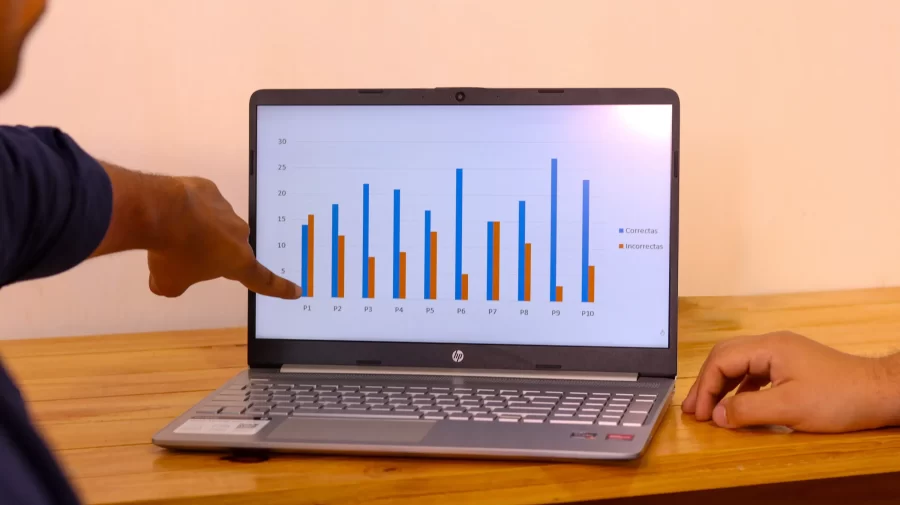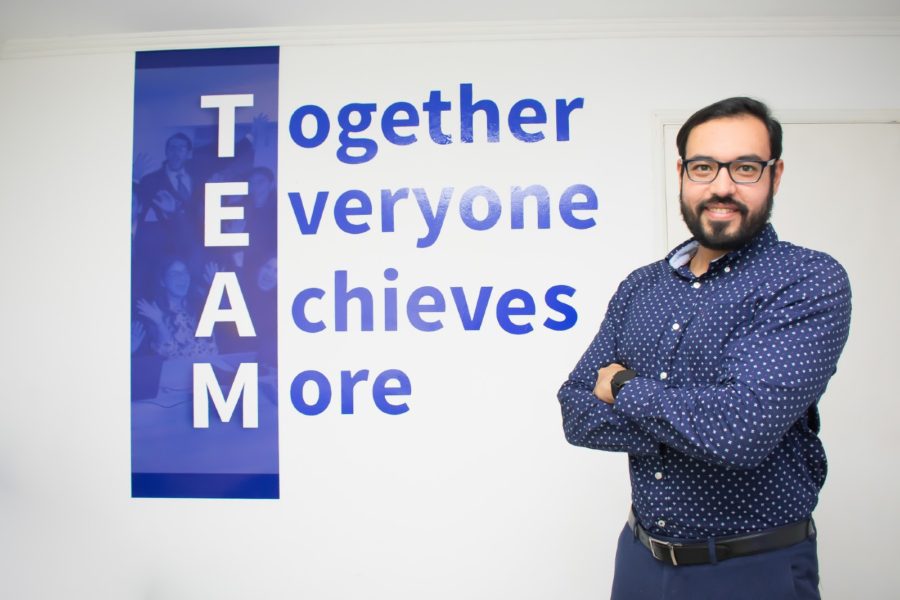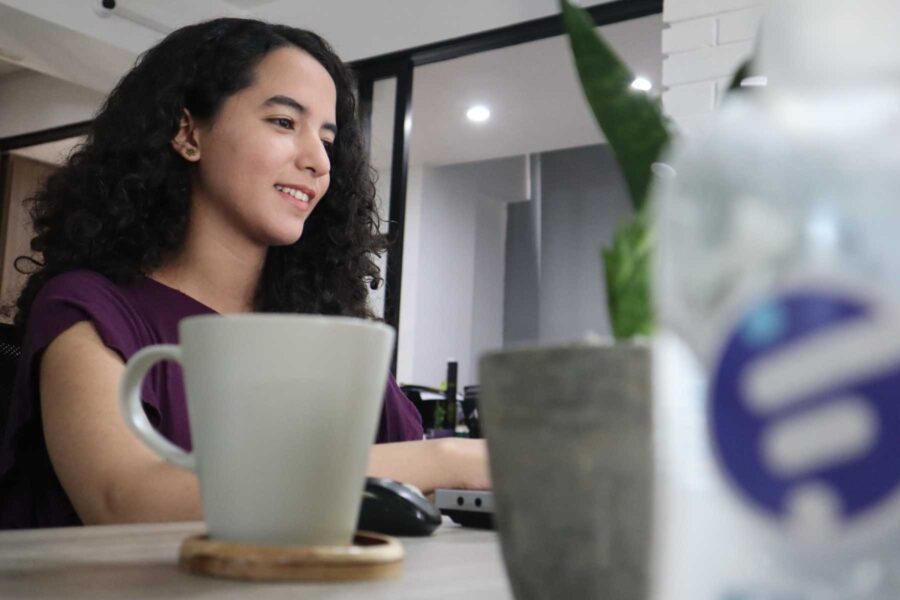There are a million adjectives we use to describe ourselves when we are looking for a job. I like to believe that most of the ones we use are true, and there is only a slight percentage that could be an overstatement or light use of language.
When I got my first job, I said many things in that interview that helped me get the position. Some of those things were what friends and family said about me, like I am determined, even though I wouldn’t include it on my top 5.
But the point is that we say things we might not be very convinced of. I surely said some things that I hoped to improve along the way. And don’t worry about me—it went beautifully well, and I caught up to my word in no time, which is precisely what I intend to help you do here.
The purpose of this article is not to tell you what criteria you should meet to be the perfect candidate at an interview or how to be the ideal worker. I’m sure you have bumped into lots of those when trying to find some light at the end of the how-can-I-improve tunnel, and although they can be helpful guidelines sometimes, it is not my intention this time.
The plan is to help you improve a skill that will pay off quickly. Becoming detail-oriented might be easier for some people, but it could feel like pushing an enormous rock uphill for others. Therefore, I aim to make it as simple and achievable as possible.
When it comes to attention to detail, everyone has an opinion. Some people call it nitpicky, others say it is a subtle form to call a perfectionist. It could be neither or both. It will all depend on how you want to approach your work and your work environment in general.
This skill can take you and your work to the next level. There is quality in the details, and though you might not be aiming for perfection, a good product can become an excellent one by paying closer attention to the little things. But how? Let’s start by breaking down what it is.
What Does It Mean To Be Detail-oriented?
In a nutshell, being detail-oriented means being interested in paying close attention to details. I particularly like that definition because it includes a key aspect… to be interested. Because you could simply be hyper-fixated with a specific thing and that wouldn’t make you a detail-oriented person.
It is not about focusing exclusively or obsessively on little things. It is a bit more about caring about every part of the process, whether is big or small. Imagine that you only focused on the minor details. No project could move forward.
To thrive by taking care of the details, you need to keep in mind the big picture, too, but don’t stress too much about it; this can be trained. If we treat attention to detail like a skill, then we can be sure that is something that can be developed.

What should you aspire to achieve, or how would you know you have mastered this skill? Well, let me simplify it… You can be sure you are mastering it when it starts becoming a habit. If you care for a job well done, you want to pay attention to everything around it. You start making the habit of being prepared and organized.
You care about how you present your work, not only the quality of the product but the presentation too. And finally, to wrap it all up, you stop missing things, there is no need to take it back to add something, or to lament a day later something you could have done.
You plan, and you intend to win, and if you don’t, then it is okay; you will next time. So listen closely, here are some ways to make that happen…
Train Your Memory
Exercising your memory could have a positive impact on your performance. When you remember small bits of information, like people’s names after being introduced or slight suggestions from your client, you become more reliable, and it is most likely that you won’t miss a beat and your work will improve.
Paying attention to details does nothing if you forget them right after, so what can you do?
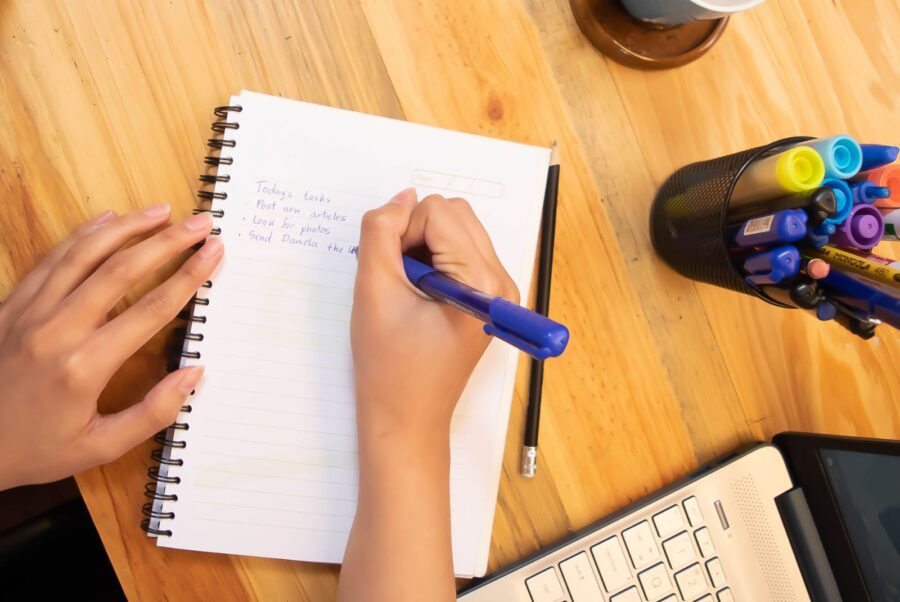
If you tend to be forgetful, it is time to start taking written notes. During that important meeting take thorough notes, after speaking to the client sit down and write your highlights as detailed as you remember.
And let me tell you something: after you write them down, you might not even forget them. But if you do, you have a backup plan. Another solution could be to record yourself talking about the project.
Talk about what you are going to do, and what needs to be checked; that way you could revisit that recording when you need to recap what is left to do. The strategy can be diverse, but jogging your memory is a must.
You could start playing chess or some other game that helps you exercise your memory and strategy. To some people, it might work to have post-it notes all over the laptop. Maybe that is not your case, and you might be more into journaling; that is valid, too. The thing is that being able to remember is being able to learn, and how else can you put a skill to use if you forget about it?
Active Listening
Listening to understand is as important as checking your work before hitting send. Being an active listener reduces the margin of error. Just think about it this way, if you made sure that you understood correctly, you are cutting off the communication problems and avoiding a whole set of mistakes that come with poor communication.
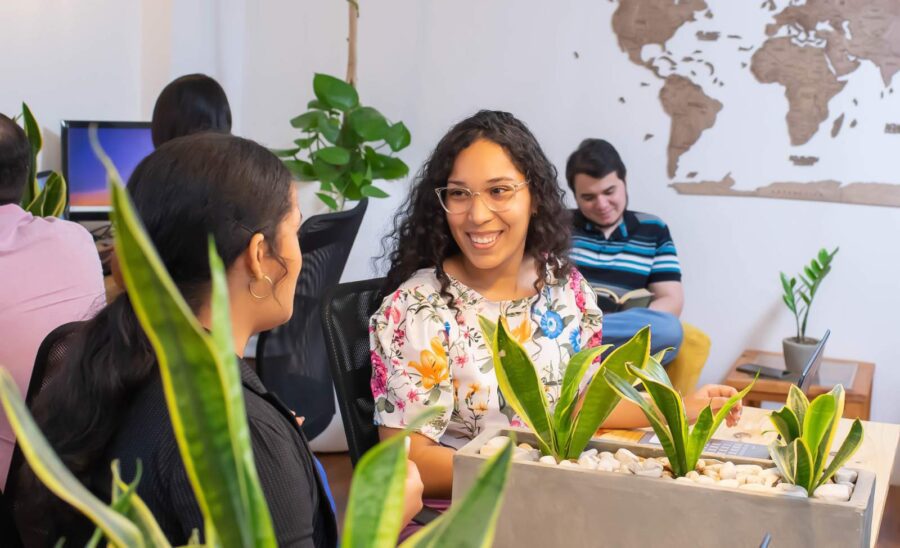
Ask questions, and don’t be afraid. If you want to learn, you need to look for the information, and what better way than asking for a source? Be inquisitive. If you didn’t quite get something, ask again; there is nothing wrong with it.
Learning to listen will bring you nothing but neat benefits. And don’t forget to listen to what is not being said, how come? Well, part of this is to listen to those nonverbal cues. Being able to pick on body language or read a room before a presentation can save you from many things.
Mindfulness

Details are those subtle things we walk past way too fast to notice. Some things we are too involved even to acknowledge. And what better example than ourselves?
How many times today did you notice your heart beating? Unless you went for a run and got agitated, I am pretty sure that you didn’t observe it at all. What about your breathing? Those patterns are the most outstanding way to become aware of small things.
During the day, we don’t notice many things. Sometimes because we are too busy to slow down enough to see them, and some others because we are not looking to see them.
But why don’t you try to train yourself to be present? It only takes a couple of minutes a day to start. With time, you will get better at being in the present moment, and using that skill when working on a project will help you pay full attention to every detail.
Start with a couple of minutes of focusing on your breathing, or maybe try to be mindful as you do something like brushing your teeth, what matters is to save up time to start.
Break Down Tasks
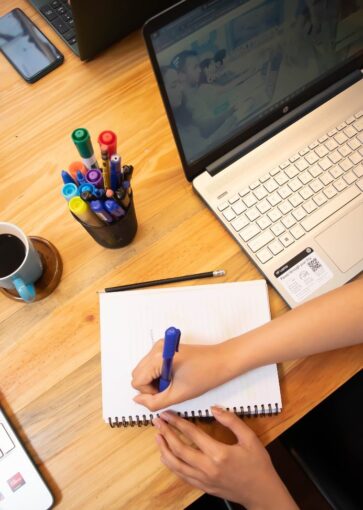
If you want to be aware of every part of something, you need to break it down into smaller fractions so you won’t miss anything. When I was little I used to have trouble cleaning my room, I was a messy kid and got overwhelmed every time I had to face that challenge.
I always felt like something was missing or that it took ages to start because it seemed like too much for me to handle. Until my grandmother came one day, I had to clean my room, see my stress, and help myself by changing my viewpoint.
My room was big, but to complete my mission to clean it, I couldn’t see my room; I had to see it as big as the corner I was cleaning, as big as the bed I was changing the sheets of.
Dividing my room into small portions helped me organize how to approach cleaning it and made it a more manageable task. When I was focused on making my bed, I could take care of its details.
Because even though I had a whole room to clean, at that moment, the only thing in my attention bubble was to do a swell job of making my bed. The same can be said about my now adult work. What allows me to be detailed is to focus on one step at a time.
Accumulate Distractions
Have you ever been super focused on your productivity peak, and suddenly, a notification sound pops your bubble? That could not sound more like a nightmare for someone who has difficulty regaining focus, and in a way, we all do.
It is inevitable to get distracted by our surroundings, and distraction can lead to missing important details about what we are doing.
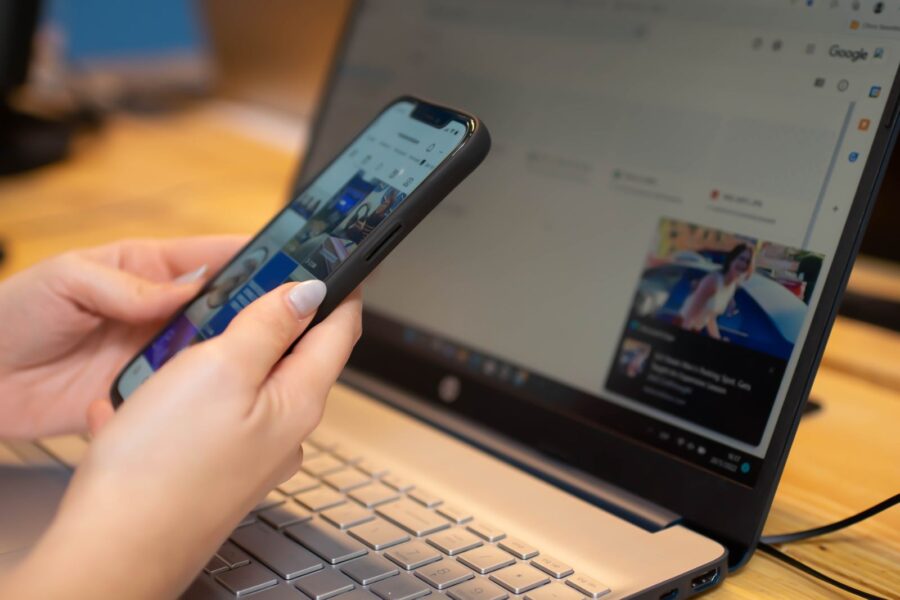
But let me ask you something: can’t that email notification wait 20 minutes? Think about how long it is okay to postpone an answer or how long you can maintain a good concentration strike and work with that.
If your time is 20 minutes, that’s okay; put your phone aside and focus on your work those minutes, then check your phone and attend to those emails, find water, stretch your legs, and get back to it for 20 more minutes.
The Pomodoro technique is an effective way to do this, if you need a bit more structure, I thoroughly recommend you try it.
Decrease Your Screentime
There is nothing as hellish at first and rewarding in time as decreasing your screentime. To be completely honest, I think my happiest moment is to uninstall my social media apps when I have a lot of work to do.
Those days, after my brain regains from not having that instant gratification of scrolling down Twitter, I feel like a new person.
Creativity flows, thoughts get more complex… I even get back to wondering about tiny existential questions like the meaning of life and so on. I can feel how my attention span grows and my concentration lasts longer; which is precisely what you want from this.
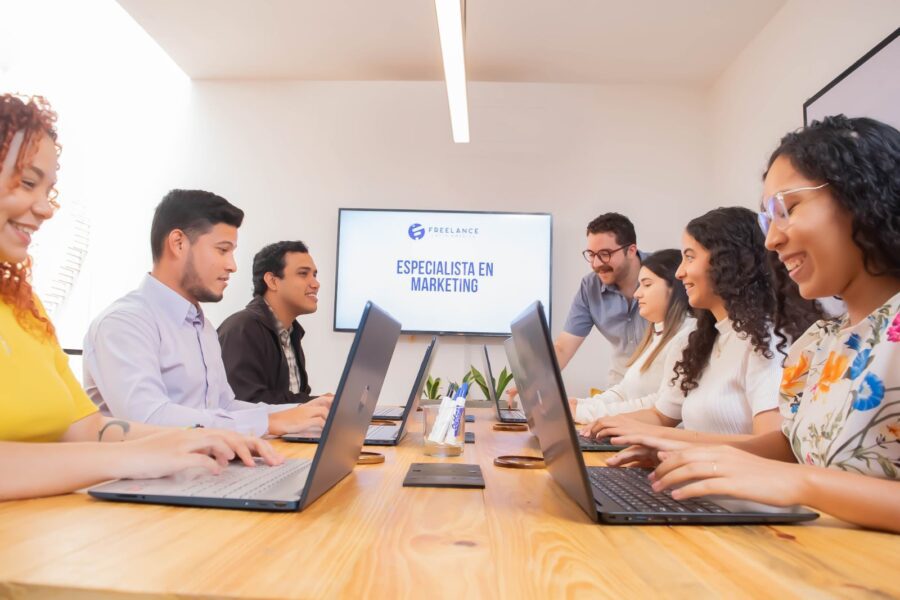
I’m aware that we work with screens all the time; we connect with people through them, and sometimes it is not very plausible to cut your screen time in half. You could start by setting a timer and leaving your phone until the timer rings.
You could also minimize distractions by turning on the do not disturb mode, or even uninstalling some time-consuming apps for a couple of days. It won’t be easy at first, but detaching a little from them can give you the space to notice more things around you, therefore attending to the loose ends you might find on a project or the slight contradiction in what the client said they wanted.
More attention and concentration are swell benefits for every aspect of your life. What would it be like for you if you stopped forgetting where you put your keys, or if you need to call that supplier before you run out of its product? Little details save time.
Read More
Reading feeds the mind. It is an activity that will progressively help you be more attentive since it requires your focus, and you can also use it as a way to be self-observant and find out how much you remember after reading a chapter, or how many pages can you read without getting distracted.
It is also a great way to put your attention to a screen. And though it might seem obvious, you are the best candidate to save your skin with this one.
Reading has other benefits, such as improving your attention to detail. You can use it as practice, and it will improve your vocabulary and grammar without even noticing. Those are details that we might let slide more often than we wish to.
But being around words, surrounded by the eloquent words of authors who were edited by someone who paid extreme attention to their language details, is like being immersed in a culture you want to absorb everything from.
Your vocabulary will expand, poorly designed phrases will sound odd to you, and more. Language is a detail that we need to re-check constantly.
How many times do you proofread an email before sending it? I used to do it once, only to find better ways to express my ideas after sending them. Now, something I do and recommend is to proofread your work once, put it aside, and proofread it again later. I promise you that with a fresh look, it will all run smoother.
Enjoy The Process And Get To Know Yourself
Mastering a skill shouldn’t be a burden, even if it doesn’t come off as easy. It is not like you are a detail-finding machine, you are still human and if you miss a thing or two once in a while, it is understandable.
No one will judge you if you have a typing error in your email. We have all been there. You will get better with time; try not to rush your pace.
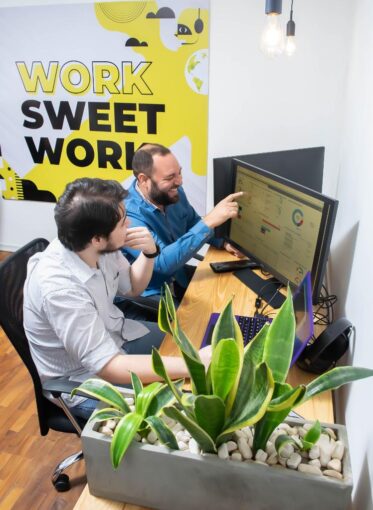
Get to know yourself and what works for you. Whether that means doing your creative work at night or always having a calendar, do what works best for you.
Sure, being organized is key and it will make your life easier, but the method you use to keep organized is up to you. Some people love to-do lists, others keep reminders on their phones.
I find those a bit stressful, so I prefer to have a notebook where I write down the details of what I need to do. I also draw a calendar to keep track of the days I have to complete each task; I keep it visible, and when I need to re-check something, I open it and solve my question.
That works for me now, but it is not what I have always used, and it might not be what I use six months from now. The magic of growing and being self-aware is that you actively look for new strategies that suit you better each time. Let your strategy grow with you, find new ones, and try as many as you like until you find a good fit to use, and then find another when it doesn’t fit anymore.
Stay Curious
Curiosity can take you places you might never see otherwise. If you like your work and are curious, every part of every process will motivate you to learn. And as I said before, being interested is an essential component in getting to attend to the details.
What you give your attention to, you shine a light on, and as much as you care for your project, it will glow as a polished product.
Improving is a path with ups and downs. Attention is a currency we all need to invest more wisely. Details make the difference between average and excellent. Therefore, there is nothing you should try more than investing in yourself by developing a skill like this one.
In work and life, it is like day and night when it becomes part of your way of approaching the world. So, what are you waiting for to look closer?
See more articles by Laura Navarro.


